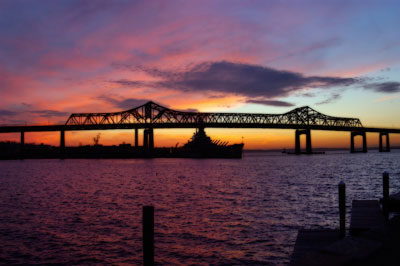This city opens
on the darkling west
in granite and somnolence,
the dawn behind it—
sloping its tenements to the green bridge
inviting Providence through
Swansea, coughing
itself awake, clearing
an everyday blear with coffee
and cream-cakes at the Terminal
Bakery on South Main Street,
a little before seven.
It is freezing in February.
The variety stores open
clutching bundles
of the Herald News, reshuffling
their sundries down to the last can
and candy bar you can find
on the next block, too.
These neat squares of Fall River,
a hundred of them,
same citadels beyond their
second century rise like
afterthoughts— they have seen
such birth and love, fight,
indifference, dying, they
are the same houses housing
the same names— Sousa, Suneson, Charette
that pass their generations under
new coats of paint or aluminum siding,
permanent as persistence,
still trying.
In the old days
the neighborhoods were parochial, hard
in their nationality—
parks had their bronze heroes,
churches saints, prayed
to in French, Portuguese, Polish;
their masses fed only familiar tongues
between the Latin.
Now, they don’t assume
so much as a grandmother’s stare
when they court and marry,
their bloods and festivals
mix and carry them together
like fitted rocks of Rock Street,
bound with trolley-tracks in a calendar’s
concrete of chimed existence
until or if they crack
like any other coupling—
to tears and reminiscence.
This town was a cotton-weave,
a sewing machine
the coat hanger of a nation;
Lizzie Borden walked its
ways the lonely figure of acquittal,
her lingering, off-put smile
printed on teeshirts; you can visit
the murder site, just down Second Street
from Middle.
Main came together at Pleasant,
at the heart of things; the garish
lemon of the Lloyd’s sign you could see
farther than you could walk, the buses lined up;
McWhirr’s and Cherry’s
swung their furs and hatboxes
in promenade, Italian singers played the Durfee—
soft, these silver-belled walks
so swelled at Christmas, stripped in the seventies
for an inside mall, for one
closing after another— Woolworth’s,
Newberry’s, a mother with child
by the hand, all lost, all of them lost.
But the city goes on. The river
clings to the battleship
neath the bridge, considers ice
for water. Cars cross over
to a pink east of New Bedford
toward the empty Cape.
Through the day, commerce.
An economy of days; through
the night, early night, the deckers
and condos quietly fill, the streets
become a movie set, waiting
for scenes. Ninety thousand hive
and sleep, three-floored, three deep.
They are good
people; they work hard, they laugh,
at odd times, weep. I come here
as I can from far away, feeling
the drifter returning to monuments,
to some common, holy
or likely wholly lost
sense of all I see,
what I was and where I came from,
the everything I fear I know
too well, and yet, too often,
all I wish to be.


